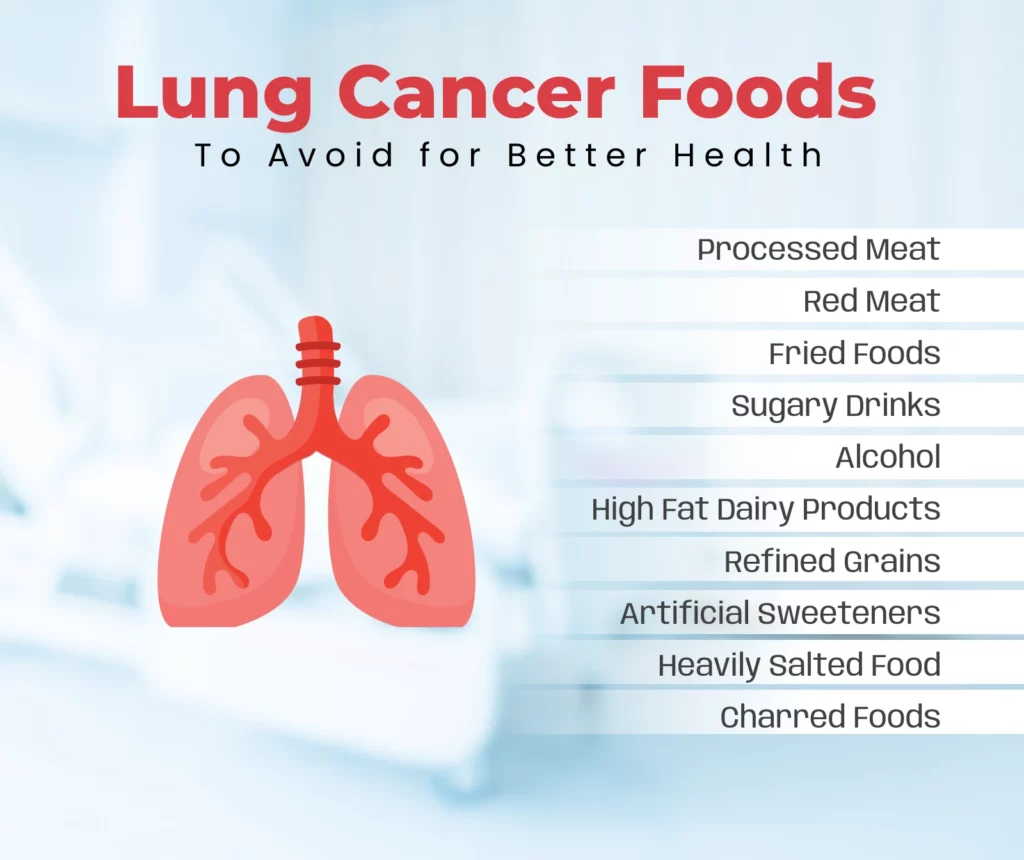
Lung cancer is a serious health concern, and diet plays a crucial role in its prevention and management. Certain foods can potentially increase the risk of lung cancer or worsen its symptoms. Understanding which lung cancer foods to avoid is essential for those looking to maintain or improve their lung health.
This article explores 10 key foods that individuals concerned about lung cancer should consider limiting or eliminating from their diet. From processed meats to charred foods, we’ll examine how these items may impact lung health and offer insights into creating a lung cancer diet that supports overall well-being. By making informed choices about what to eat, people can take proactive steps to help avoid lung cancer and support their health goals.
Processed Meats and Lung Cancer Risk
Processed meats have been classified as a ‘definite’ cause of cancer by the World Health Organization. These meats, which include bacon, sausages, and deli meats, contain high levels of saturated fat and chemicals like nitrates and nitrites. Studies suggest that consuming 50 grams of processed meat daily may increase the risk of colorectal cancer by about 18% [1]. While the link to lung cancer is less direct, the overall health impact of processed meats is concerning.
Common Types of Processed Meats
Processed meats encompass a wide range of products, including ham, hot dogs, pepperoni, beef jerky, and various deli meats. These foods are often preserved through smoking, curing, or salting, and may contain added chemical preservatives. It’s important to note that even “natural” or “uncured” deli meats often contain similar levels of nitrates and nitrites as regular processed meats [2].
Healthier Alternatives to Processed Meats
To reduce lung cancer risk and improve overall health, consider replacing processed meats with healthier options. Choose fresh seafood, poultry, or plant-based proteins like beans and lentils. These alternatives provide essential nutrients without the added preservatives and saturated fats found in processed meats. When possible, opt for home-cooked meals using whole ingredients to better control what goes into your food [3].
Red Meat Consumption and Lung Cancer
Studies suggest that high red meat consumption may have an impact on lung cancer risk. A meta-analysis found that for every 120-gram increase in daily red meat intake, the risk of lung cancer rises by 35% [1]. This association was observed across various subgroups, including gender and country of origin.
Recommended Red Meat Intake
To reduce lung cancer risk, it’s advisable to limit red meat consumption. The American Institute for Cancer Research recommends eating no more than 18 ounces of cooked red meat per week [2]. This translates to about three portions, each roughly the size of a deck of cards. Choosing to eat red meat only occasionally, as part of a plant-based diet, may be beneficial for overall health.
Lean Meat Options
When consuming red meat, opting for lean cuts can help reduce fat and calorie intake. Alternatives like poultry, fish, and plant-based proteins such as beans and lentils are healthier choices. These options provide essential nutrients without the potential risks associated with excessive red meat consumption [3].
Fried Foods and Lung Cancer Connection
Studies suggest a potential link between fried food consumption and lung cancer risk. High-temperature cooking methods, such as frying, can produce harmful compounds like acrylamide, which has been associated with cancer in animal studies [1]. While the direct connection to lung cancer in humans is not conclusive, the overall health impact of fried foods is concerning.
Types of Fried Foods to Avoid
Common fried foods to limit include French fries, potato chips, fried chicken, and doughnuts. These items are often high in saturated fats and calories, which can lead to weight gain and increase the risk of heart disease and stroke [2]. For individuals with lung conditions like COPD, fried foods may cause bloating and make breathing more difficult.
Healthier Cooking Methods
To reduce lung cancer risk and improve overall health, consider alternative cooking methods such as baking, broiling, or steaming. These techniques preserve nutrients better and don’t produce harmful compounds associated with high-temperature frying [3]. Opting for these healthier cooking methods can help maintain a balanced diet and support better lung health.
Sugary Drinks

Image Source: The BMJ
Sugar’s Impact on Lung Cancer
Studies suggest a potential link between high sugar consumption and lung cancer risk. Excessive sugar intake can lead to hyperglycemia, which may damage organs and tissues. This damage has a stronger association with squamous cell carcinoma (SCC) than other lung cancer types [1]. A diet high in sugar also increases the risk of developing diabetes, a significant risk factor for lung cancer [2].
Common Sugary Beverages
Sugar-sweetened beverages (SSBs) are a leading source of added sugars in the American diet. These include regular soda, fruit drinks, sports drinks, energy drinks, sweetened waters, and coffee and tea beverages with added sugars [3]. On average, US youth consume 143 calories from SSBs, while adults consume 145 calories from SSBs on a given day [3].
Low-Sugar Alternatives
To reduce lung cancer risk and improve overall health, it’s advisable to limit sugary drink intake. Water, unsweetened tea or coffee, and low-fat dairy options are healthier alternatives . For those seeking sweetness, natural sweeteners like stevia or monk fruit may be considered, although their long-term effects on health are still being studied .
Alcohol and Lung Cancer Risk
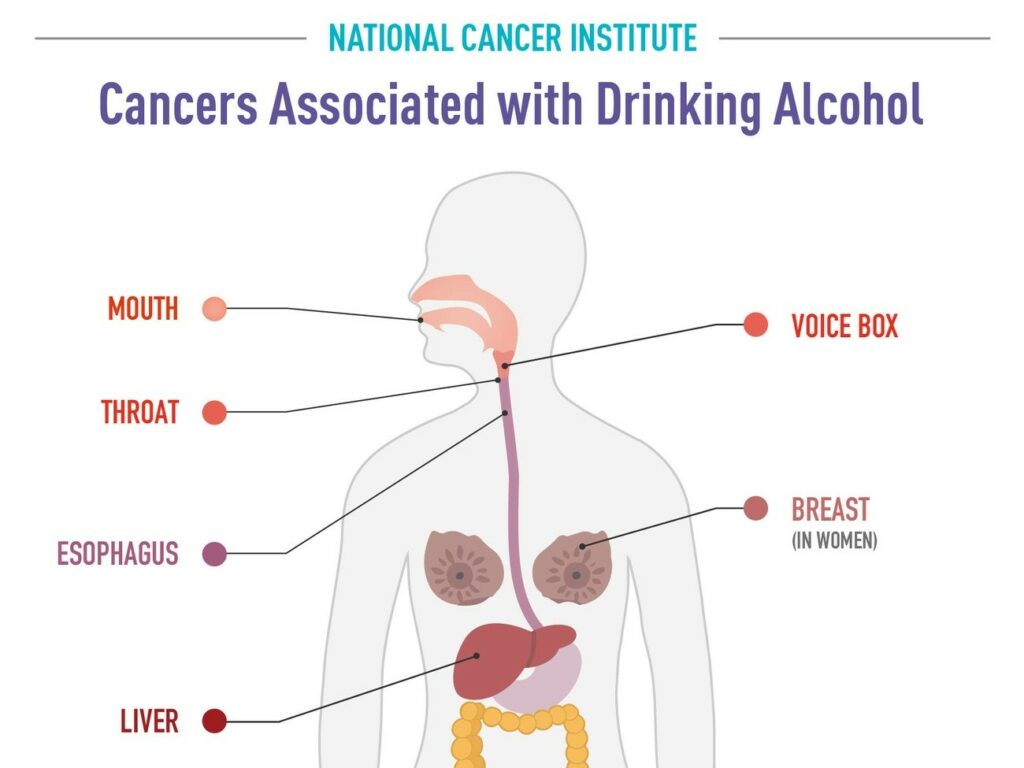
Image Source: National Cancer Institute
Studies suggest a potential link between alcohol consumption and lung cancer risk. Heavy drinking may increase the risk of lung cancer, especially squamous cell carcinoma [1]. The World Health Organization classifies alcohol as a carcinogen, and it has been associated with various types of cancer [2].
Recommended Alcohol Limits
To reduce lung cancer risk, it’s advisable to limit alcohol consumption. The UK Chief Medical Officers recommend no more than 14 units of alcohol per week for both men and women [3]. This equates to about six pints of average-strength beer. It’s best to spread these units over three or more days and have several alcohol-free days each week.
Non-Alcoholic Alternatives
To support lung health, consider replacing alcoholic beverages with healthier options. Water, unsweetened tea, and low-fat dairy alternatives are excellent choices. These options provide hydration without the potential risks associated with alcohol consumption.
High-Fat Dairy Products
Dairy Fat and Lung Cancer
Studies suggest a potential link between high-fat dairy consumption and cancer risk. While research on lung cancer specifically is limited, some studies indicate that regular dairy intake may increase the risk of certain cancers [1]. The relationship between dairy products and cancer risk may vary depending on fat content.
High-Fat Dairy Foods to Limit
To reduce potential health risks, it’s advisable to limit consumption of full-fat dairy products. These include whole milk, full-fat cheese, butter, and cream. These foods are high in saturated fat, which may contribute to heart disease and stroke risk [2]. It’s best to use butter and cream sparingly in cooking and food preparation.
Low-Fat Dairy Options
Opting for low-fat dairy alternatives can be beneficial for overall health. Choose semi-skimmed or 1% fat milk, reduced-fat cheese, and low-fat yogurts [3]. These options provide essential nutrients like calcium and protein while reducing saturated fat intake. Low-fat dairy products may also have potential benefits in reducing lung cancer risk, though more research is needed to confirm this relationship .
Refined Grains and Cancer Risk
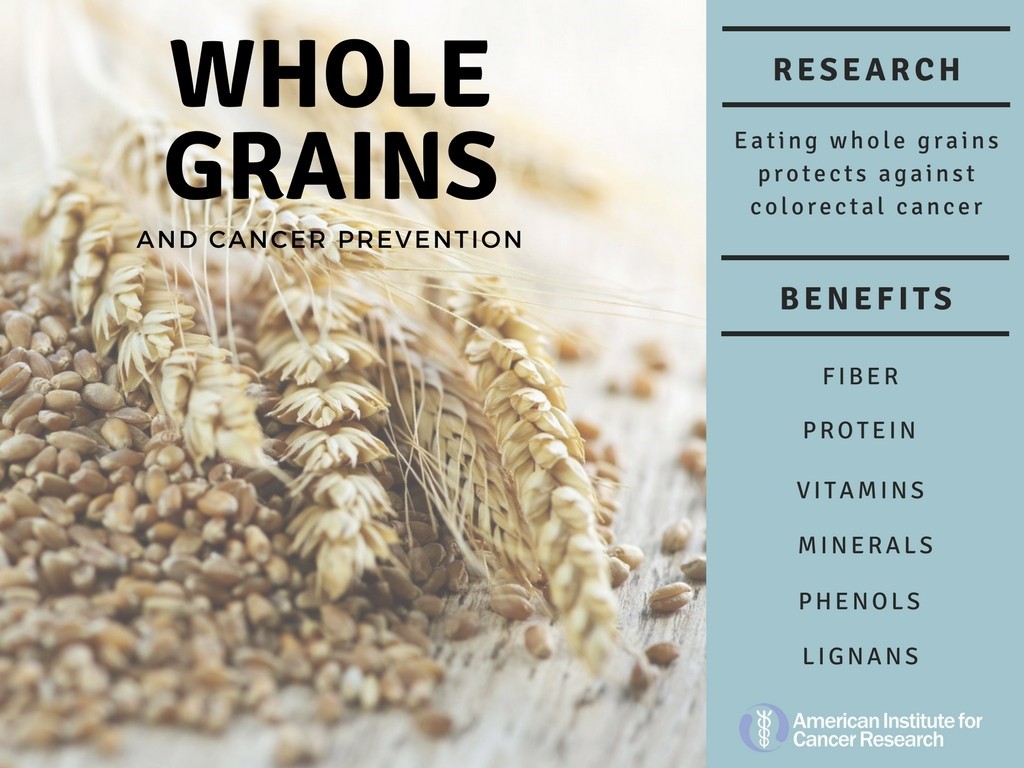
Image Source: American Institute for Cancer Research
Studies suggest a potential link between refined grain consumption and cancer risk. High glycemic index (GI) diets, which include refined grains, may increase the risk of colon and bladder cancer [1]. Research indicates that high carbohydrate intake from high GI foods is associated with increased risk of colon cancer and diabetes-related cancers [1].
Common Refined Grain Products
Refined grain products include white bread, white rice, and many breakfast cereals. These foods have been stripped of fiber and beneficial nutrients during processing [2]. Even when enriched with vitamins and minerals, refined grains lack the full nutritional profile of whole grains.
Whole Grain Substitutes
To reduce lung cancer risk and improve overall health, consider replacing refined grains with whole grain alternatives. Options include oatmeal, whole wheat bread, brown rice, quinoa, and whole grain pasta [3]. These substitutes provide more nutrients and fiber, potentially lowering cancer risk.
Artificial Sweeteners and Cancer Concerns
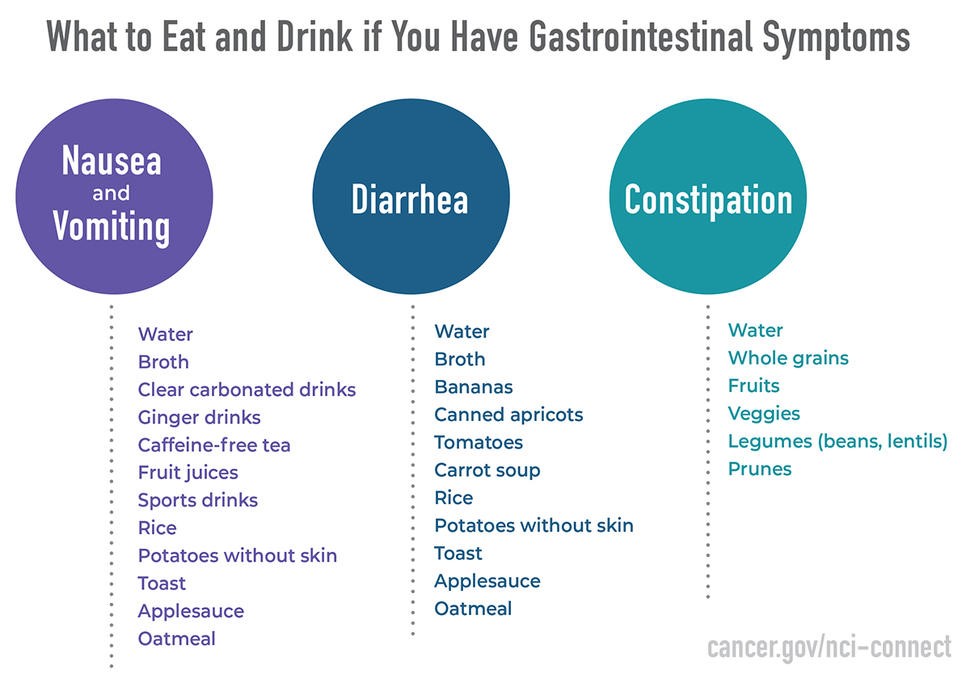
Image Source: National Cancer Institute
Studies have not shown convincing evidence that artificial sweeteners cause cancer in humans. The FDA has approved six artificial sweeteners as food additives after reviewing numerous safety studies [1]. However, concerns persist due to early studies linking cyclamate and saccharin to bladder cancer in lab animals [2]. In 2023, the International Agency for Research on Cancer classified aspartame as “possibly carcinogenic to humans” based on limited evidence [3]. Despite this, the FDA disagreed with this conclusion, citing significant shortcomings in the studies .
Types of Artificial Sweeteners
Common artificial sweeteners include aspartame, saccharin, sucralose, acesulfame potassium, neotame, and advantame . These sweeteners are used in various products like diet sodas, desserts, and chewing gum as alternatives to sugar [5]. Aspartame, one of the most widely used sweeteners, has been the subject of numerous studies, with most finding no clear association with cancer risk [6].
Natural Sweetener Alternatives
For those looking to avoid artificial sweeteners, natural alternatives like stevia and monk fruit sweeteners may offer benefits. Stevia, extracted from the Stevia rebaudiana plant, is calorie-free and may help lower blood pressure and blood sugar levels [7]. Monk fruit extract is also calorie-free and contains antioxidant compounds that may reduce inflammation [8]. However, it’s important to use these alternatives in moderation, as excessive consumption of any sweetener can potentially impact health .
Heavily Salted Foods
Salt Intake and Lung Cancer
Studies suggest a potential link between high salt consumption and cancer risk. While research on lung cancer specifically is limited, excessive salt intake may increase the risk of stomach cancer [1]. The World Health Organization recommends consuming no more than 5 g of salt per day, yet many countries exceed this recommendation [2].
High-Sodium Foods to Avoid
More than 75% of sodium consumption comes from processed foods and eating out [3]. Foods to limit include cured meats, fast food, and packaged snacks. These items often contain high levels of sodium, which may contribute to fluid retention and shortness of breath in lung disease patients .
Low-Sodium Seasoning Options
To reduce sodium intake while maintaining flavor, consider using herbs and spices. Fresh garlic, onions, and citrus fruits can add zest to meals without extra salt . Experimenting with different seasonings can help create tasty, low-sodium alternatives for those looking to avoid lung cancer foods.
Charred or Burnt Foods
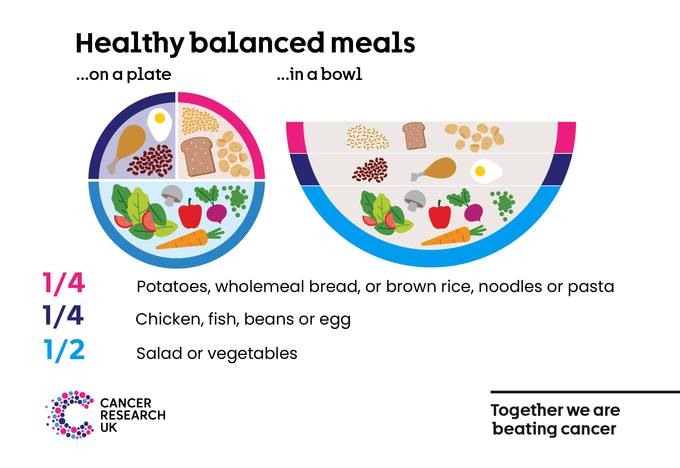
Image Source: Cancer Research UK
Charred Foods and Carcinogens
When foods are cooked at high temperatures, particularly through grilling or barbecuing, they can form harmful compounds. These include heterocyclic amines (HCAs) and polycyclic aromatic hydrocarbons (PAHs), which are potential carcinogens [1]. Studies suggest that consuming charred or burnt foods may increase the risk of certain cancers, although more research is needed to establish a definitive link in humans [2].
Cooking Methods that Produce Char
Grilling, barbecuing, and pan-searing are common cooking methods that can lead to charring. These techniques often involve high heat and direct flame contact, which contribute to the formation of HCAs and PAHs [3]. To reduce the risk associated with these cooking methods, it’s advisable to avoid overcooking or burning foods, especially meats.
Safe Cooking Practices
To minimize the formation of harmful compounds, consider alternative cooking methods such as baking, steaming, or poaching. When grilling, marinating meats beforehand can help reduce HCA formation . Additionally, turning meat frequently and removing charred portions before eating can lower exposure to potential carcinogens. These practices can help maintain flavor while reducing the risk of consuming harmful substances associated with charred foods.
Conclusion
Understanding the impact of diet on lung cancer risk is crucial to maintaining good health. This article has explored ten foods that may increase the risk of lung cancer or worsen its symptoms. By avoiding processed meats, limiting red meat intake, and choosing healthier cooking methods, individuals can take steps to reduce their risk. What’s more, opting for whole grains, low-fat dairy, and natural sweeteners can contribute to a balanced diet that supports lung health.
In the end, making informed food choices is just one part of a comprehensive approach to prevent lung cancer. While diet plays a significant role, it’s important to remember that other factors like smoking, exposure to pollutants, and genetics also have an impact on lung cancer risk. To protect your health, it’s best to combine a healthy diet with regular exercise, avoiding tobacco, and getting regular check-ups. These lifestyle changes can help to lower your risk of lung cancer and improve your overall well-being.
FAQs
- What types of food should be avoided by individuals with lung cancer? If you are at risk for lung cancer or have been diagnosed with it, you should steer clear of certain foods. These include deli meats, uncooked sushi, eggs, raw vegetable sprouts, highly salty foods, carbonated beverages, and fried foods.
- Which foods are detrimental to lung health? To protect your lungs, avoid salty and fried foods, sodas and other sugary drinks, processed meats, dairy products, and foods containing sulfites and salicylates. Opt for whole-grain and plant-based alternatives instead.
- What are some foods that can help improve lung function? Foods and drinks that are beneficial for lung health include coffee, dark leafy greens, fatty fish, peppers, tomatoes, olive oil, oysters, blueberries, and pumpkin. These items are known to support and enhance lung function.
- Are there specific drinks that promote lung health? Several drinks are noted for their positive effects on the lungs, including green tea, which is rich in antioxidants, turmeric milk, warm water with lemon, honey and warm water, pineapple juice, beetroot juice, and garlic-infused water. These beverages can have anti-inflammatory properties and may help protect lung tissue.
References
[1] – https://www.webmd.com/lung-cancer/features/foods-avoid-lung-cancer
[2] – https://www.hopkinsmedicine.org/health/conditions-and-diseases/cancer/cancer-diet-foods-to-add-and-avoid-during-cancer-treatment
[3] – https://sarahcannon.com/for-patients/learn-about-cancer/lung-cancer/nutrition.dot
[4] – https://www.wcrf.org/diet-activity-and-cancer/cancer-types/lung-cancer/
[5] – https://www.ncbi.nlm.nih.gov/pmc/articles/PMC10102585/
[6] – https://www.lung.org/lung-health-diseases/lung-disease-lookup/lung-cancer/treatment/stay-healthy/prevention
[7] – https://www.moffitt.org/cancers/lung-cancer/faqs/foods-that-prevent-and-fight-lung-cancer/
[8] – https://www.betterhealth.vic.gov.au/health/conditionsandtreatments/cancer-and-food